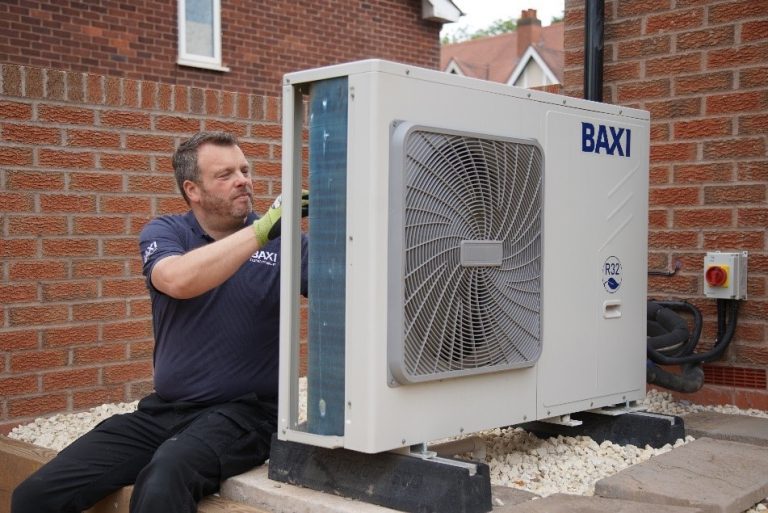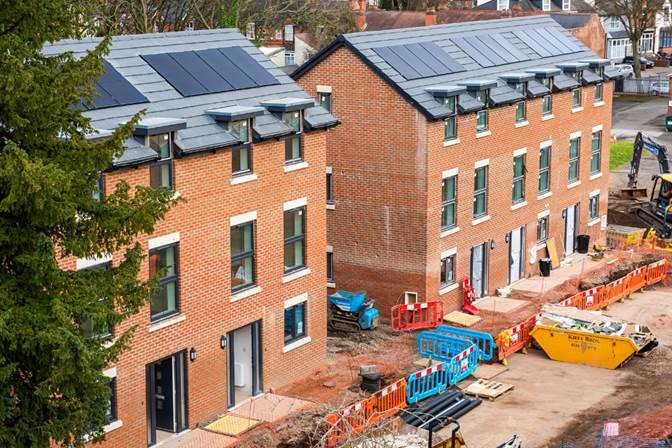Sustainable building materials, heat pump myth-busting and a tour of an energy efficient tenement will be among the shows at this year’s Green Home Festival, organisers have revealed. Alternative heat sources and exploring how we will live and travel in 2045 will also be high on the agenda at the five-day hybrid event, which is being organised by the Construction Industry Collective Voice (CICV). Running from 8-12 August as part of the official Edinburgh Festival Fringe and delivered via a mix of in-person and virtual presentations, the festival will deliver practical assistance and advice to help Scotland become a net zero nation. CICV organisers have narrowed down the itinerary to around 12 shows, which will be suitable for both the public and construction industry, with topics including: Building sustainable neighbourhoods Hydrogen as a potential future heat source Commercial buildings of the future Retrofitting traditional buildings and other house types Taking a fabric-first approach to energy efficient homes Sustainable construction and asset management Upskilling the workforce for sustainable construction Feasibility of electric vehicles and home charging points Carbon, nitrate and water capture through roofing Global case studies on successful low-carbon projects. A special Green Home Festival family day is also in the pipeline, featuring a series of interactive activities and games based around green energy and low-carbon living. Event organiser, John McKinney, Secretary of the National Federation of Roofing Contractors, said: “We are extremely excited to reveal some of the topics for the inaugural Green Home Festival, which will deliver a wealth of demonstrations and hands-on guidance. “We are particularly excited about the planned tour of a tenement that has been made energy efficient, which will demonstrate how Scotland’s traditional buildings can be retrofitted to minimise carbon emissions. “We are also looking forward to demystifying the buzz around heat pumps and hydrogen, and exploring how the construction industry can work together in a variety of ways to mitigate climate change and build a greener Scotland for everyone.” Presenters at the show will include experts from the CICV and other organisations including the Scottish Futures Trust, Leeds Sustainability Institute and Scottish Hydrogen Fuel Cell Association, with venues, dates and booking details to be revealed later this year. Co-organiser Gordon Nelson, Scotland Director of the Federation of Master Builders, added: “We have been working very hard on the planned itinerary to find a balance and ensure that the events will be suitable for the public and the construction industry itself. “As well as shows the about the house of the future, electric vehicles and the truth about heat pumps, other sessions will take a professional perspective on the multi-disciplinary approach required to build a more sustainable and healthy environment. “Whatever the topic, every show will have the same mission – to engage audiences and help everyone reduce their carbon footprint and become more energy efficient.” Targeting homeowners, professionals, local authorities, housing associations and local authorities, the CICV is aiming to make the Green Home Festival an annual event that will build a long-term legacy. The event is the latest in a string of practical and constructive initiatives launched by the CICV since its creation as the Construction Industry Coronavirus (CICV) Forum in March 2020. Made up of 29 trade associations, professional services bodies and companies, it has maintained a steady supply of information and practical advice to the sector as well as carrying out surveys, producing animations and posters, hosting webinars and maintaining close dialogue with Scottish Government ministers.







